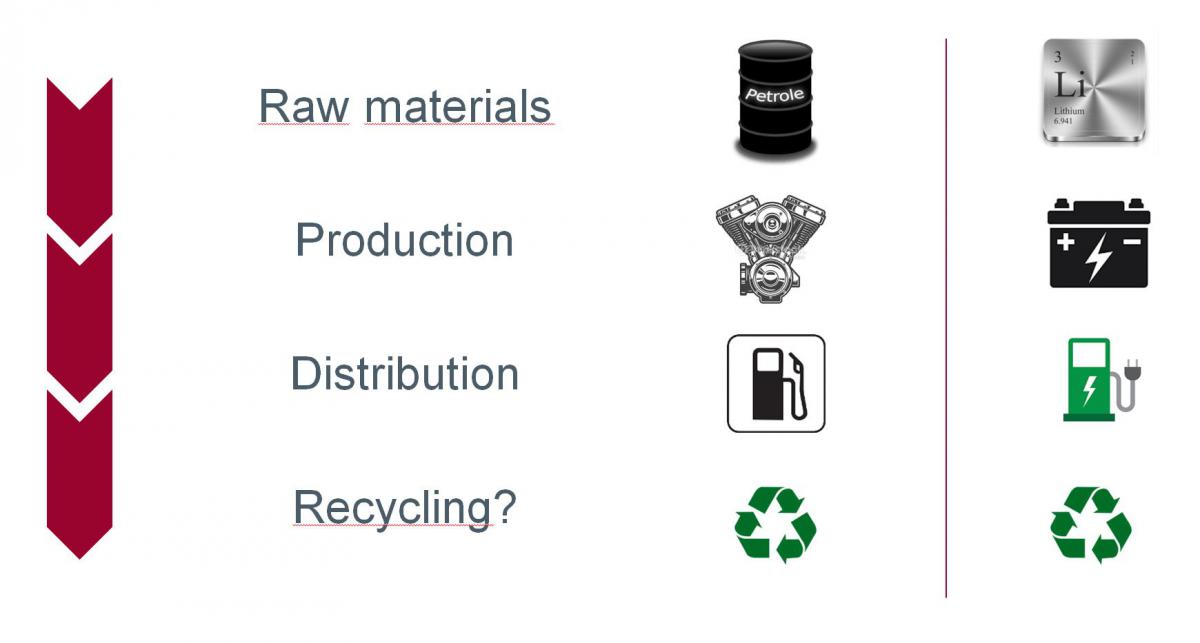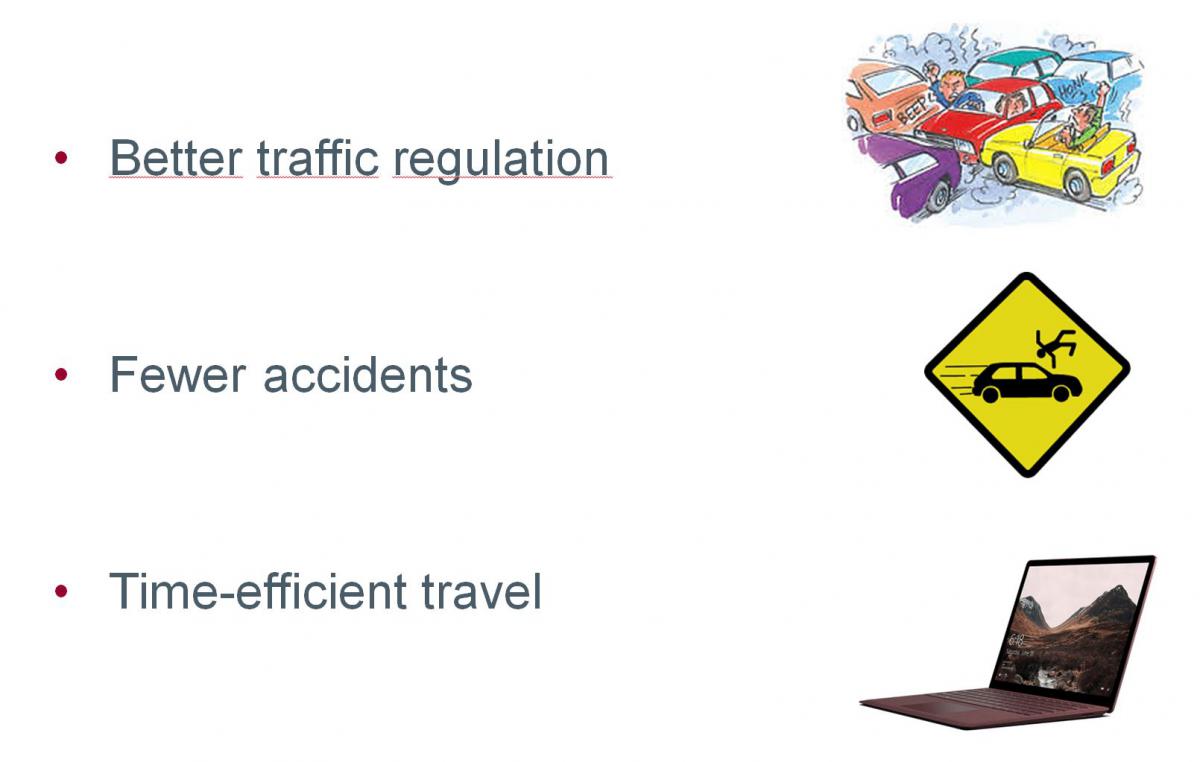Analyse January 2018
An electric future for the auto industry
The car of the future is a dream already coming true. It will be electric, thereby dispensing with fossil fuels and opting instead for a more efficient, environmentally friendly energy supply. And it will be connected to a variety of new systems, making it autonomous.
The shift towards electric motors and autonomous vehicles is revolutionising the automobile industry, even though it will be some time before cars capable of driving themselves with no human help start hitting the road in numbers. Eventually, however, the economic and urban landscape will be totally transformed, along with the way that people approach mobility. The demise of the internal combustion engine and its replacement by a cleaner device is already on the cards. It is an inescapable obligation laid down by the need to fight climate change, improve the quality of the air we breathe, reduce noise pollution and manage energy supplies.
And yet, carbon-free alternatives are still not at our doorstep. Over a billion cars ply the world’s roads, almost all of them fuelled by petrol or gas. Electric vehicles account for just 1% of units sold. Buyers are still put off by their high, sales price, limited range, short battery life and the scarcity of public charging stations. A massive switch-over to electric cars would require a much larger number of these recharging facilities. European automakers are considering setting up a network of terminals.
The automobile industry is not balking at the idea of a new form of propulsion. Volkswagen, Europe’s leading carmaker, wants to increase its sales of electric vehicles to 3 million by 2025. The cost of lithium-ion batteries has come down fivefold since 2010. The price of a kilowatt hour of the electricity these batteries produce now ranges around USD 200.
Research on the latest-generation batteries is focused on reducing their weight and bulk. The challenge lies in increasing their capacity by borrowing from the technology used in smartphones, for example. Manufacturers also need to enhance these batteries’ safety and deal with recycling issues.
Self-driving vehicles will revolutionise the whole ecosystem
Designing a car with the ability to analyse its surroundings and drive itself without human assistance is no longer a wild idea. Cars already come equipped with power steering, anti-lock brakes, a cruise control and a park-assist function. In order to operate, an autonomous car needs an on-board computer, sensors, radars to detect the road, other cars and obstacles and 5G connectivity.
The benefits that autonomous cars would provide include better traffic regulation, fewer road accidents and more time-efficient travel. According to projections by the Boston Consulting Group, 12 million fully autonomous vehicles and 18 semi-autonomous vehicles could be sold within the next 20 years—a quarter of annual global sales. The necessary technologies (cameras, GPS and sensors) already exist but more progress is required in data-analysis software. How can the detection system be made to work when road markets are covered with snow, for instance?
Other obstacles which are delaying the advent of self-driving vehicles are the legal aspect and public demand for zero tolerance regarding defects.
Most of the world’s leading carmakers and technology groups are working to design autonomous vehicles. By 2020 Toyota will test electric cars capable of reading the driver’s expressions. Renault wants to launch its own models within five years. Other manufacturers, such as Ford and BMW, say they plan to market vehicles with no steering wheel or pedals. Google cars already cruise the roads in California. People will soon be able to devote the time they now spend driving to other activities, such as leisure or work.
Investment implications
For investors looking to ride the wave towards electric and autonomous vehicles, in our view a number of segments are well positioned to cash in on this revolution. The shift to electric motors will benefit companies which produce the metals used in batteries and the firms which make electrical infrastructure. In view of the widespread distrust of diesel engines triggered by the software-rigging scandal, electric cars have given automakers a new marketing argument. Moreover, in order not to lose significant market share, manufacturers are trying to grab a large part of the value chain in the self-driving segment by taking over or linking up with firms specialising in vital digital engineering technologies. These are the companies that design connected systems, microprocessors, sensors, data-collecting devices, software, etc.
Fig. 1. Product life cycles

Fig. 2. Benefits of autonomous cars

Bonhôte Group news
The Bank adds new expertise to discretionary management
René Morgenthaler, an enthusiastic investment specialist with over 30 years’ experience in wealth management, joined Bonhôte on 1 December 2017 as head of discretionary management. Formerly CIO of a prestigious Geneva-based bank, he has broad-based expertise in all asset classes and long-standing experience in team leadership.
Secure performance with asymmetric funds
Participating fully in the markets’ performances without suffering losses when they turn down, is that not what most investors want? Our Bonhôte Asymmetric line chalked up remarkable returns last year, with the Mixed CHF fund delivering over +10.84%, the CHF Bonds fund over +3.47% and the CHF Equities fund over +17.86%.
Bonhôte in the media
In 2017 there was a large number of contributions and articles on our Bank in the French and German Swiss media. You will find excerpts from the main articles about us at bonhote.ch/press.


 Analyse
Analyse